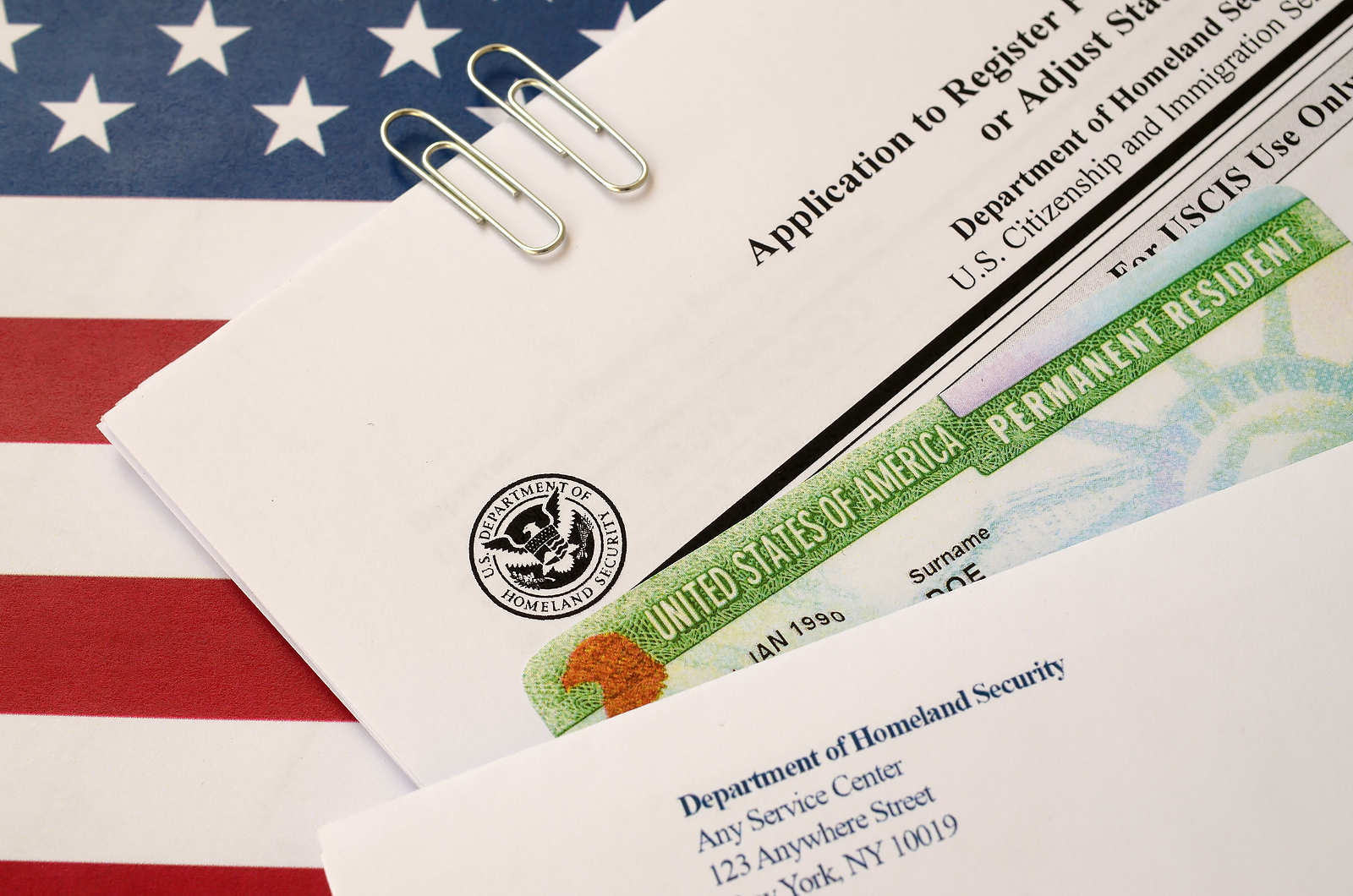HIRING FOREIGN TALENT OPTIONS

Non-Immigrant/Temporary Visa Options
L-1A: Intracompany Transferee of an Employee in an Executive or Managerial Capacity
The immigration laws provide for the granting of a nonimmigrant visa to an individual who, within 3 years preceding the time of the application for admission into the US, has been employed continuously for one year by a firm or corporation or other legal entity or an affiliate or subsidiary thereof and who seeks to enter the US temporarily in order to continue to render services to the same employer or a subsidiary or affiliate thereof in a capacity that is managerial, executive, or involves specialized knowledge.
- The foreign company must be related to the US company in a specific manner (e.g., subsidiary, branch, parent, affiliate).
- The company must be a qualifying organization, in that it is a US or foreign firm, corporation, or other legal entity which (a) meets one of the qualifying relationships, (b) is or will be doing business as an employer in the US and at least one other country directly through the parent, branch, affiliate, or subsidiary for the duration of the L visa, and (c) meets the other L visa requirements.
- The employee must have worked abroad for the foreign company for a continuous period of at least one year in the preceding three (3) year period.
- The employee to be transferred must have been employed abroad in an executive or managerial position or in a position involving specialized knowledge.
- The employee must be coming to the US company to work in an executive, managerial, or specialized knowledge capacity.
- The employee must be qualified for the position by virtue of their prior education and experience.
- The employee must intend to depart the US upon completion of their authorized stay
This visa category can be used to transfer an employee that is coming to the US to open a new office that is related to the foreign company. The foreign company has to remain in business the entire time the L visa is valid and the relationship between the companies has to remain the same.
Non-Immigrant/Temporary Visa Options
H1B: Specialty Occupations
This temporary visa is available for the hiring of foreign workers to perform in a specialty occupation. A specialty occupation is defined as an occupation that requires theoretical and practical application of highly specialized knowledge and attainment of a bachelor’s degree or higher in the specific specialty or its equivalent as a minimum for entry into the occupation in the US. Experience can be used to substitute education. Some occupations that qualify as specialty occupations include accountant, acupuncturist, chiropractor, dietician, industrial designer, investment analyst, librarian, medical technologist, orthopedist, pharmacist, social worker, and teacher.
The regulations require that the employer pay the prevailing wage for the job, which is determined based on job description, level, and location, and the employer cannot bench the employee for lack of work. If the employer terminates the employee before the end of the stated period of employment, the employer must pay the employee’s cost of transportation to return to their home country and inform USCIS, otherwise the employer might still be liable for paying the employee’s wages even if they are not working.
The employer must file a Labor Condition Application (LCA) with the US Department of Labor before it can petition a foreign worker. The purpose of the LCA is to make sure the hiring of the foreign employee does not adversely affect US workers.
Businesses interested in petitioning a foreign employee in the H1B visa category need to register during the registration period, which starts on April 1st of each year. Once the registration period closes, USCIS selects from the employers that registered and informs those selected that they can file a petition and the time frame for filing.


Immigrant/Permanent Residence (Green Card) Options
Employment Based - First Preference, EB-1: Priority Workers
The Employment Based – First Preference category (EB-1) includes three categories, persons of extraordinary ability, outstanding professors & researchers, and multinational executives and managers. Contrary to the Second and Third Preference categories, this category does not require that the employer obtain a certified Application for Permanent Employment Certification from the US Department of Labor.
- Persons of Extraordinary Ability: These are individuals with extraordinary ability in the sciences, arts, education, business, or athletics which has been demonstrated by sustained national or international acclaim and whose achievements have been recognized in the field through extensive documentation. They must seek entry to continue to work in the area of extraordinary ability and they will substantially benefit the US. These individuals may self-petition, which means they do not need an employer to file a petition for their benefit.
- Outstanding Professors & Researchers: They must have been recognized internationally as outstanding in a specific academic field, which is defined as a body of specialized knowledge offered for study at an accredited US university or institution of higher education. Although mainly used by universities or institutions of higher education, a private employer may use this visa category to hire a foreign researcher, if it employs at least 3 full time researchers and has achieved documented achievements in the academic field.
- Multinational Executives & Managers (similar to the L visa): This category is used to transfer an individual that has been employed abroad for one year within the last 3 years by a firm or corporation or other legal entity or an affiliate or subsidiary thereof in an executive or managerial capacity, in order to continue to render services to the same employer or subsidiary or affiliate in a managerial or executive capacity. If the individual has been in the US with an L visa, the 3 years immediately prior to moving to the US with the L visa will count to meet this requirement.
The company must have been doing business in the US for at least one year. Since there is no option to come to the US in this visa category to open a new office, it is common for the individual to initially come into the country with an L visa and, after the company has been in business for the required amount of time, a petition for an immigrant visa in the EB-1 category is filed.
Immigrant/Permanent Residence (Green Card) Options
Employment Based - Second Preference, EB-2: Professionals with Advanced Degrees & Exceptional Ability
The Employment Based – Second Preference category (EB-2) includes two categories, members of professions holding advanced degrees and individuals with exceptional ability. This category requires that the employer obtain a certified Application for Permanent Employment Certification from the US Department of Labor. However, certain professions do not require the certification and a National Interest Waiver is available.
- Members of Professions Holding Advanced Degrees: The position must require an advanced degree and the foreign individual must have an advanced degree or its equivalent in education and experience (Bachelor’s degree plus 5 years of experience may meet this requirement). The degree may be a US degree or a foreign equivalent.
- Individuals of Exceptional Ability: This category is available for someone with a degree of expertise significantly above that ordinarily encountered in the sciences, arts, or business.


Immigrant/Permanent Residence (Green Card) Options
Employment Based - Third Preference, EB-3: Professionals, Skilled Workers, & Unskilled/Other Workers
The Employment Based – Third Preference category (EB-3) includes three categories, professionals, skilled workers, and unskilled/other workers. This category requires that the employer obtain a certified Application for Permanent Employment Certification from the US Department of Labor and there is no waiver available.
- Professionals: The position must require a Bachelor’s degree and the foreign individual must have a Bachelor’s degree. The degree may be a US degree or a foreign equivalent.
- Skilled Workers: Full time permanent job requiring at least 2 years of training or work experience. Relevant post-secondary education may be considered as training
- Unskilled/Other Workers: Foreign nationals with less than 2 years of training and work experience